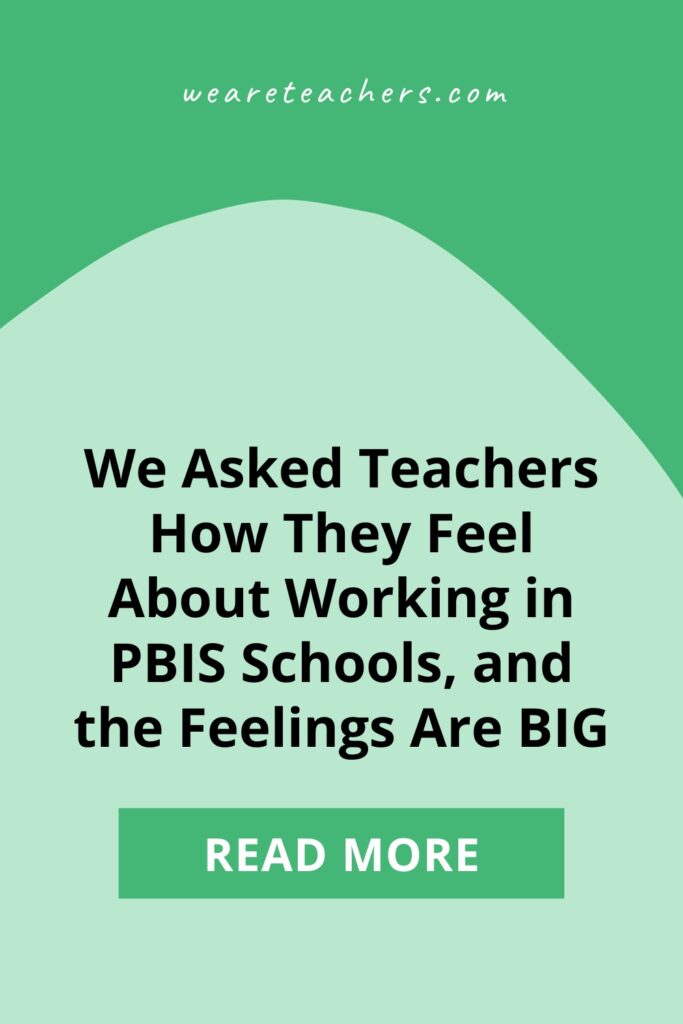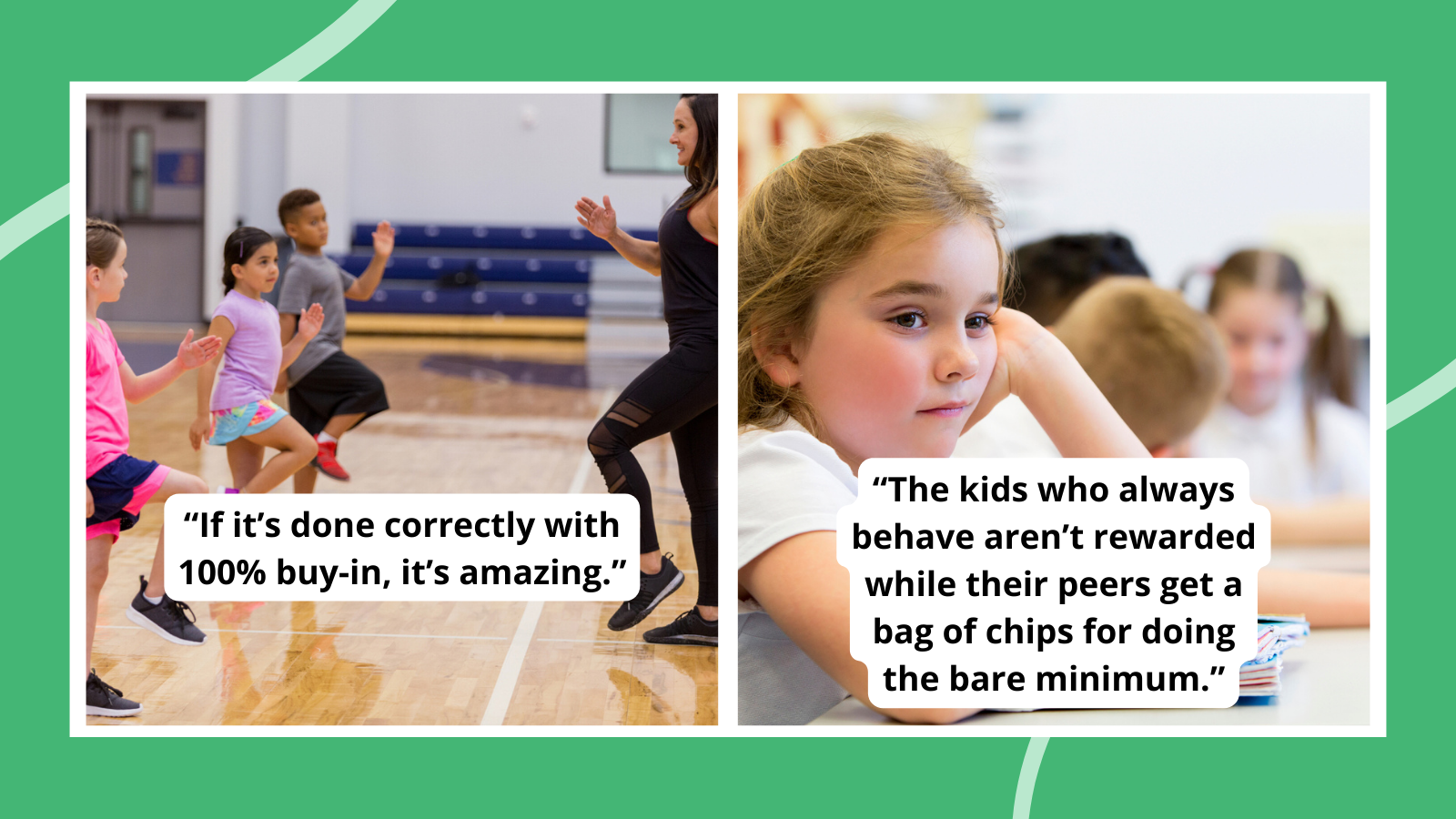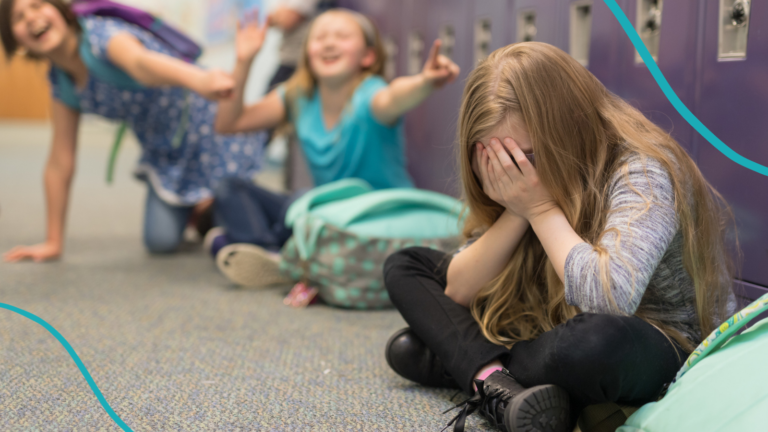Schools nationwide have adopted the framework of PBIS (Positive Behavior Interventions and Supports) as a way to support kids’ behavior as well as their social-emotional and mental health. We wanted to know how teachers feel about working in a PBIS school, so we asked them.
Over 400 comments later, it became clear that opinions on this system varied drastically.
What is PBIS?
PBIS stands for Positive Behavior Interventions and Support. Our PBIS informational article goes over all the ins and outs, but basically PBIS is an evidence-based framework for schools to use to promote a positive school culture and support students’ behavior and mental health. Here are some basics to know:
- Student participation in the program is based on one of three tiers, depending on their needs.
- Practices are based on point systems and rewards with an emphasis on recognizing positive behavior.
- The program centers equity as the focus for practices, data, and systems, emphasizing that one-size-fits-all discipline systems don’t recognize individual student needs.
Sounds great, right? Well, it depends on who you ask.
We divided the responses by how they feel about PBIS in their school.
I love it! ☺️
“If it’s done correctly (and I wholeheartedly believe that our school’s system is), it is amazing.”
“I wouldn’t want to teach without it. If my school took a different direction, I would still use it in my own classroom. It has gotten me through some of the toughest kids in my career, while helping me to celebrate the others as well. I love it!” —Kristine H.
“I loved PBIS and felt like it was such a game changer.”
“The most important part was no teacher should ever just assume a student knows the correct behavior.” —Leeann K.
“As a school counselor, I’m a big fan.”
“I’m on the PBIS/MTSS team too. It’s really working. Nothing in education is magical and amazing, but I think PBIS can make such a positive impact in schools. Our team meets weekly and looks at the data and decides upon interventions. I’m very invested in it.” —Erin W.
Parts of it work, but I struggle with the downsides. 🫤
“The extrinsic reward isn’t my favorite thing (especially if it’s food because I feel like that sets kids up for a REALLY unhealthy relationship with food later in life).”
“But I do like the positive focus, common language, and explicit teaching of behavior.” —Maggs J.
“In some ways it works, but I feel it isn’t always fair to those who always do the right thing.”
“The students that need that reinforcement always seem to end up with more rewards than those that ALWAYS do the right thing.” —Patty B.
“The teacher always recognizing (or not!) individual kids can kind of set up a weird and often detrimental dynamic between students.”
“But I like the teaching of expectations and common language in PBIS.” —Allison G.
“I don’t like when schools make the teachers spend X amount of time on it per week on top of everything else.”
—Shay R.
Hard no from me. 😡
“The supports put in place for my most challenging student looked to the rest of his classmates like he was getting rewards for bad behavior.”
“His classmates did not understand actions have consequences.” —Lynn M.
“I feel that it may be beneficial for elementary students, but in my high school, and the one I worked at previously, it is not very effective.”
—Renee R.
“Students are not taught that following rules is a norm in a civil society.”
“Also unfair to students who are polite, kind, and thoughtful. They aren’t rewarded for that.” —Judi H.
“When it comes to the big behaviors, it’s a nightmare.”
—Melissa J.
“‘Oh Johnny, you only cussed out your teacher 3 times instead of 5! Congratulations, here’s your bag of Takis!'”
“Rewards the kids for doing the bare minimum of what is expected—and not the well-behaved kids, either.” —Anastasia B.
What needs to change?
The most common report—from teachers who love PBIS and from those who are over it—was that PBIS needs buy-in to work. But can we really blame teachers for not buying in to a system with some fundamental weaknesses?
Based on what teachers shared with us, here’s what we gathered needs to change.
The system needs to be less fragile.
Many teachers reported that the system worked … until something happened. We got a new principal. The teacher who spearheaded it left. We had a big staff turnover. These are all things that commonly happen in schools all the time, especially in lower socioeconomic areas.
A system that requires 100% buy-in or rests on the shoulders of a single staff member is not an effective system. Good systems anticipate and account for areas of weakness.
The system needs the flexibility to address some serious shortcomings.
By far, the most common frustrations from teachers were the icky feelings about an external reward system and the lack of recognition for students who consistently do the right thing.
Many teachers recognized benefits of PBIS but reported that it left a certain student group at a disadvantage. Kids with serious and recurring behaviors. Students who always did the right thing. Middle and high school students who were resistant to buy-in.
PBIS prides itself on equity. It needs to start working for all kids.
Schools need to properly fund and staff for PBIS.
Nothing is free, including a school-wide reward system. Schools using PBIS need funding—not just for the first few years but as long as it’s an expectation.
Schools need to realistically balance the demands of PBIS against teachers’ existing commitments and responsibilities.
Anyone can get on board with something that takes a little more work on the front end to have huge payoff on the back end. But teachers are reporting that PBIS requires work on the front end … and then constant work in the middle.
If the paperwork and time involved in PBIS is significant, something’s gotta give. And schools need to be the ones clearing teachers’ plates.
Looking for more articles like this? Be sure to subscribe to our newsletters.


